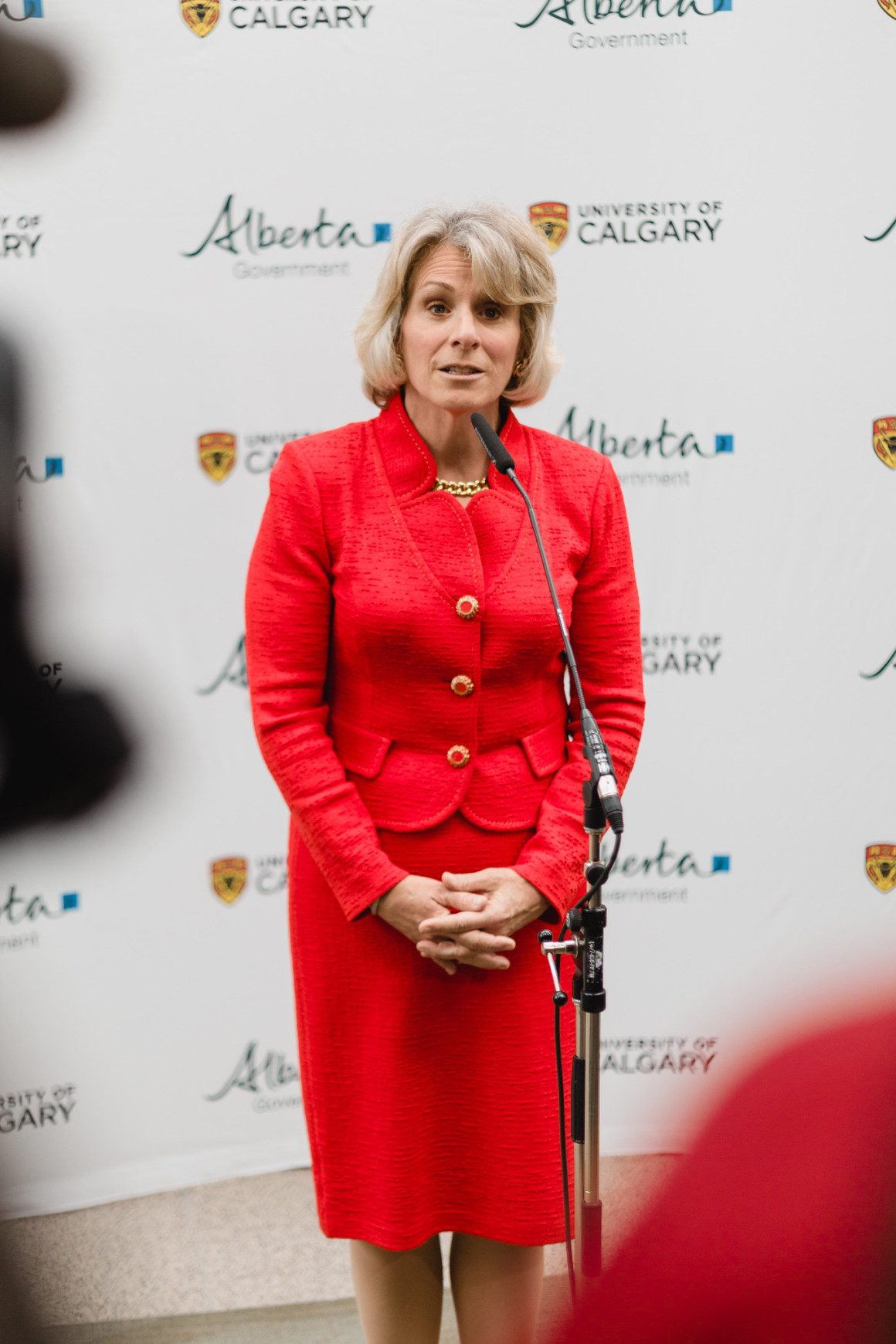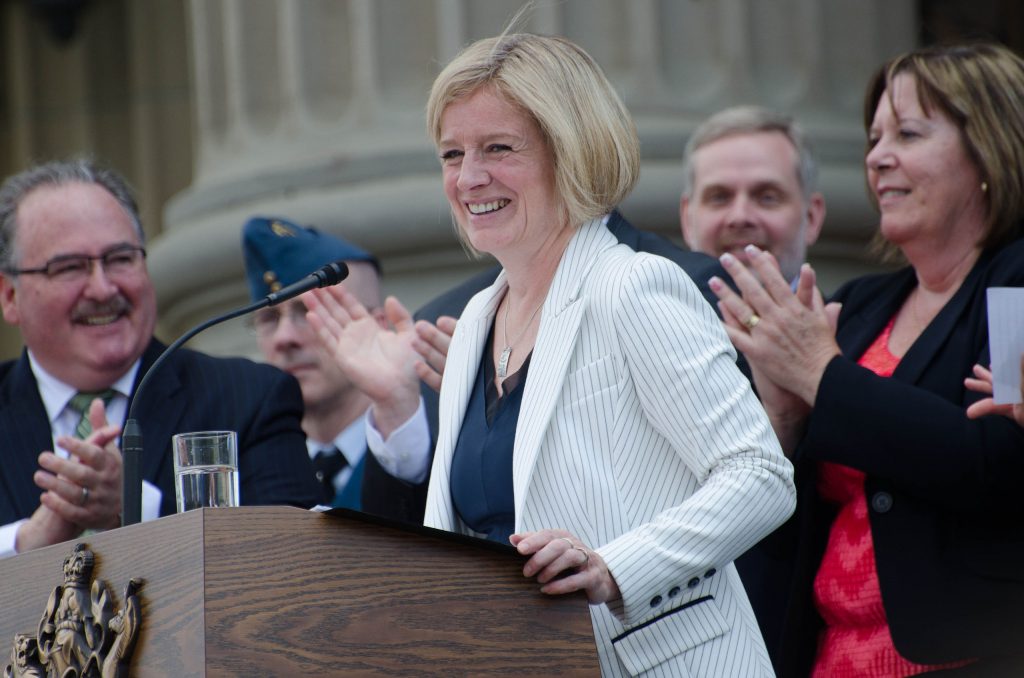
Cannon suggests province might not provide tuition freeze backfill funding
By Saima Asad, February 28 2017 —
There could be some minor revenue shortfalls in the operating budgets of Alberta’s public post-secondary institutions next year.
In her opening address to General Faculties Council on Feb. 16, University of Calgary president Elizabeth Cannon said the U of C will “probably not receive backfill funding” from the Alberta government in the upcoming year.
The backfill funding would make up for a potential revenue shortfall from the current tuition freeze. In 2016, the Alberta New Democratic Party government supplied the province’s 26 public post-secondary institutions with about $16 million in total.

Alberta Premier Rachel Notley’s government implemented the tuition freeze in September 2015 // Courtesy Connor Mah
The U of C provided the following statement on Cannon’s remarks:
“The University of Calgary works closely with the Government of Alberta to maintain strong government support for the university’s operating budget. While we do not anticipate tuition backfill funding in this year’s budget — and have not included it in the university’s budget projections for 2017–18 — this government has been supportive of stable and predictable funding for post-secondary education in Alberta and we are optimistic that the provincial budget will maintain that support.”
Outside of a freeze, tuition increases in Alberta are capped by the Canadian Consumer Price Index. Each post-secondary institution’s governing board votes on inflationary tuition increases — usually a couple per cent — every year.
“The fact that we’re in this situation highlights the need for a sustainable and predictable solution to tuition right now,” U of C Students’ Union vice-president external Tristan Bray said. “This would not be an issue if tuition had risen by the rate of inflation this year, as in the regulation.”
Domestic tuition rates in Alberta have been frozen since September 2015. The freeze was originally slated to expire in September 2017, but the NDP government announced in October 2016 that it would extend the freeze by an extra year to allow for a thorough review of the province’s tuition and fee model.
“The review is still underway, but once it is finished, the outcomes — along with those from the system resourcing [funding] review — will inform recommendations for cabinet which would be in place for the 2018–19 year,” ministry of advanced education spokesperson Ben Lof said.
Lof also said it would be premature to comment whether or not the government will supply backfill funding before the budget is released.

Bray said the U of C students could feel the effects of the revenue shortfall // Photo by Zarif Alibhai
“Our government is investing in our institutions and has been clear on its commitment to stable and predictable funding, which allows for world-class education and affordability for students,” he said. “Instead of the cuts of the previous government — including cuts planned for these past two years — our government has made two per cent increases to the base grant of every institution for the past two years. We have made it clear that we will continue to support them.”
If the NDP does not supply backfill funding, the U of C could lose roughly $2–4 million dollars next year, depending on student enrolment. Revenue from student tuition accounts for about 18 per cent of the U of C’s operating budget.
Bray said that even though it’s a small amount in relation to the university’s overall revenue, the shortfall could have a negative impact on teaching and learning at the U of C.
“It could lead to possible cuts in any number of areas. It could lead to larger class sizes. It could lead to cuts to programs and services that students use,” he said.
Cannon also said in her opening address at GFC that the U of C will pay about $2.5 million in increased utilities next year due to the recently-implemented provincial carbon tax.
The NDP will likely release their budget in March or April.
